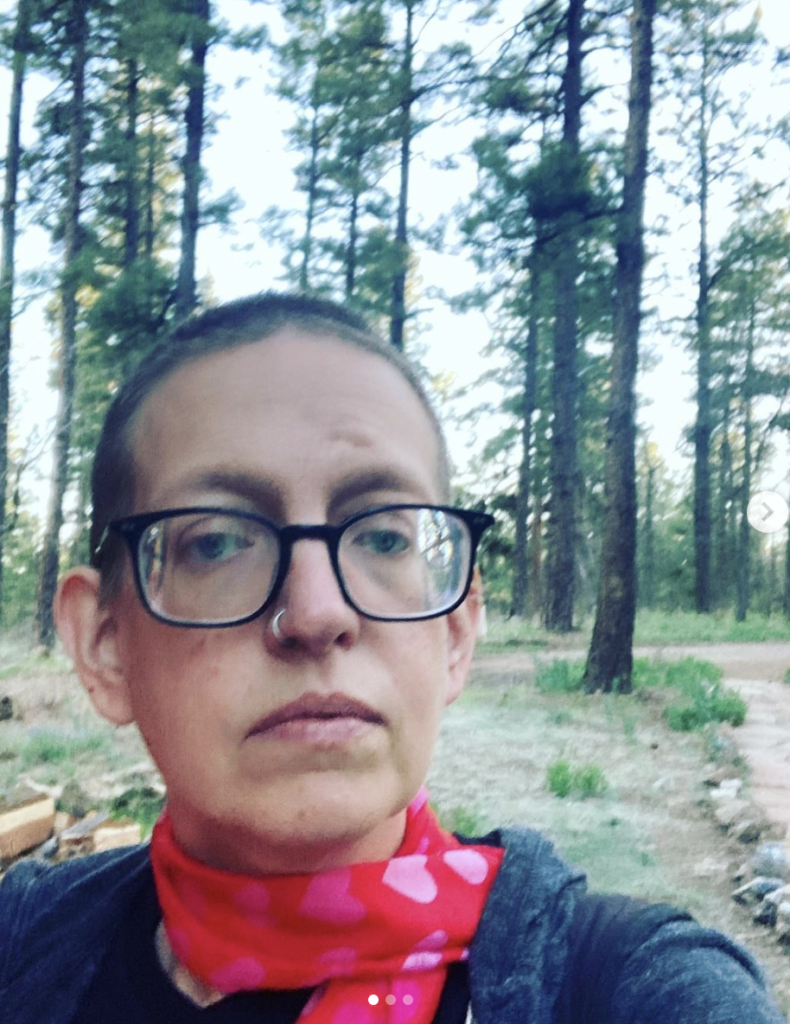
In memory of Rev. Dr. Travis DuPriest (1944 – 2021)
When I learned that Rev. Dr. DuPriest had died, I felt sorrow and that exquisite little spark of anguish that always flickers and stings when we look upon the distant past – the far away corners, the furthest past, the past when we, ourselves were newer, rawer, more innocent, more different.
Time moves forward. There is no choice. Some days this simple fact makes me absolutely apoplectic. Other days, I repeat my mantras, let my feelings move through me, and let go.
Once in elementary school, I watched a film narrated by Carl Sagan. This was the suburbs of Chicago, the 1980s, though the old Catholic school still reeked of the 1950s.
“Even the sun,” Carl Sagan explained from a projection against a well-worn screen, “will one day burn itself out.”
I was deeply upset by this information. I had just begun to grasp my own mortality, but the sun? Even the sun? I could not accept this. And “you won’t even be alive when it happens” was no consolation. Even at 10, I had the wisdom to know I did not want to be crawling between heaven and earth on the day the sun takes its last breath. I just wanted to know something would always be alive.
Even the sun. I was 10. I remember sitting on the curb, all noodle legs and arms and scabby-knees on the blacktop during a game of kickball, thinking that “I am one whole decade old.”
I was puzzled; was this good or bad?
Often, I am still puzzled. Often, my jury feels very much out on this matter, very mired in deliberations as to whether this life we’re given is a great gift that we squander with our many tedious miseries, or a miserable burden dreamed up by some sadistic deity.
Nevertheless we like “alive” well enough to be here, and this is the way of all things: they are here, they are gone. This is the way of all love: we love, we grieve. One cannot be extrapolated entirely from the other
Grief comes with our human package. We can fuss and kick and scream, but nothing can delete our lifetime supply of grief.
My last year in Flagstaff was not good, and so my work in grieving and letting Flagstaff “go” will be to remind myself there was, in fact, a reason I told my wife on day one of my job at FALA, “One year. That’s final.” And ended up staying for nearly a decade.
I fell in love with Flagstaff. Madly, deeply, truly, and ridiculously – for “ridiculously” is the only way I know how to love anything at all – in love.
I loved you ridiculously, Flagstaff. Sometimes, you also loved me back, ridiculously.
One of the wisest American artists, the late Maya Angelou, gave simple, perfect words to this absolute, 100%, no-doubt-about-it-capital-T-intended Truth: “[. . .] people will forget what you said, people will forget what you did, but people will never forget how you made them feel.”
While I don’t vividly recall the exact assignments, or the precise nature of each evening’s class, I remember the sound of Dr. DuPriest’s voice: gentle, vaguely southern, pleasing to the ear. I loved the sound of his voice, even when I wasn’t fully listening. (Listening, as a skill, came later to me in life.)
Moreover, Travis DuPriest made me feel good, feel safe, feel loved, and proud of myself, and this is what I remember with excruciating clarity about this man and this is why, though I have not seen his face in nearly a quarter of a century, his death begets in me grief.
To love is to grieve.
Doesn’t that piss you off? It pisses me off.
I have tried to mitigate love in an effort to mitigate grief, tried to hang on to what was gone only to fail spectacularly, to hurt myself, to hurt others, by attempting repeatedly to solve this problem: the coin of love has another side, and that other side is the face of grief.
And then, during my Flagstaff Era, might have been at Basha’s or in Room 13 or an alley downtown, I woke up to this fact: I can love less, drown love, ration love and still I will not be spared.
Grief will come whether I love big, love small or not love at all.
I love ridiculously because ridiculous love is the very force that has brought the best people and situations into my life, whereas loving small has only ever left me alone with a mouthful of the very ash my Favorite Bastard Poet T.S. Eliot references in “The Wasteland” when he writes, “I will show you fear in a handful of dust.”
When I was a little girl, every Ash Wednesday we went to mass for the priest to smudge our foreheads and remind us that we will die. That was my main takeaway from Catholic “pedagogy”: Everything – you, your parents, your friends, even the sun will die.
And so what do I do with this information? No one and no thing has yet given me a satisfactory response, but perhaps for the teachings of Buddha.
The Catholic answer to my existential query was pray and go to church and take the Holy Sacraments and abide The Bible’s many teachings and be nice to people — and also, don’t be gay or promiscuous or worse yet gay and promiscuous. Marry for children. F–k your feelings.
I was born nervous, and I certainly didn’t need Catholicism to scare me into being nice. I never derive joy from the pain of my fellow human beings. I wish no one to suffer, not even those who have brought suffering and chaos into my life. Suffering does not serve me, and I try not to serve suffering to others. (Everyone screws up sometimes. Have you ever been in a car with me when I’m driving and lost? Not my best self.)
Sometimes, we hold on. Sometimes we are the kid walking an invisible dog. Everyone knows there’s no dog; everyone knows it’s just a leash, but we play along for the kid’s sake. The kid is only pretending, and if you’re old enough to read this then you’re probably too old to be walking that invisible dog. Drop the leash. You know what I mean.
There is no dog.
Perhaps it is odd that I am ending my Flagstaff column by returning to the shores of Lake Michigan, to Kenosha, the heady 1990s when I just knew my life was going ot be better if I could just somehow dislodge myself from the “stupid states” of Illinois, Iowa, Wisconsin.
“I am not going to end up living in Wisconsin,” College Me said, smoking a Camel Light, or drinking black coffee or malt liquor (what I could afford back then), and I smile at that silly girl who was completely wrong about almost everything.
No, Allison, you will not end up living in Wisconsin. A far more peculiar fate awaits you in Arizona.
College Me would have been crushed, just devastated and done in to know that she would be 45 living in Arizona, with only two books in publication, only one dog, very cute wife, but cancer? Now? For real? Am I even an Actual Writer?
Sometimes College Me is smoking away in my head saying, “You really are hell bent on making your life a horror movie like Mr. Holland’s Opus.”
My last year in Flagstaff was, bar none, the darkest year of my life. The cancer came back. The dog died. Broken systems failed me as a patient. Broken systems failed me as an educator. Broken systems failed us all as Americans, but the pain of having stage IV cancer during a pandemic, isolated from everyone and everything that was “normal” to me, was acutely terrifying.
Learn from my mistakes: do not get metastatic cancer in the middle of a pandemic – particularly if you’re a public school teacher in Arizona.
Recently, while having dinner at my in-laws’ home in the Catalina foothills, my new friend Sal interrupted me to ask in shock, “You liked pimentos as a child?”
“I loved pimentos,” I replied, going on to explain to Sal that when I was a child, my grandmother used to pull the stuffed olive from her martini glass, dip it in water and hand it, still on the skewer, to me, and I would suck out the salty pimento that despite my grandmother’s best efforts always tasted vaguely of vodka before eating the bitter green fruit.
Whenever I share this anecdote, I think of Dr. DuPriest because one night, during class, he showed up with an essay he had written on “style.” In the middle of the essay, he referenced my writing, the anecdote about the olives, the pimentos. Here was this man who I admired and respected as an intellectual, a writer, a human being and he was referencing my writing in his writing.
I nearly died of flattery (though I don’t think “flattery” was his intent, in memory Travis does not strike me as a “superficial flattery” sort of guy). Who was I to be recognized in the writing of an Actual Writer? In my old, narrow view, an Actual Writer was a writer who had been published.
About a month ago, my friend Nadia and I went to a Buddhist monastery here in town. Nadia is a former-student-turned-friend. In fact, it was a former professor-turned-friend, Dr. Loewen, who first introduced me to Buddhism; I was about Nadia’s age.
At the monastery, Nadia and I met with a monk in the Buddha room, a serene space bursting with pots of succulents, colorful prayer flags strung along the walls, and ornate, golden statues of Lord Buddha staring serenely, ever forward.
I asked the monk for his honorific. A language barrier made the question difficult, so I tried another way, “We called the men who lived at the church ‘priests.’”
“Ah,” said the monk. “Ajhan. Meaning: teacher.”
We smiled and Ajhan said, “See? Anyone can be happy.”
He gestured at himself, at me, at Nadia, “Anyone can be happy. Me, you, her.”
I walked (floated) from the monastery. How little I ever heard, in my years as a Catholic, about being “happy.” How I still struggle – rhetorically, professionally, personally, existentially – with what “happy” means.
All I know is that while I am sometimes terrified, sometimes confused, sometimes tired, these days? I’m mostly just happy. Happiness can be shockingly easy. Even with our lifetime subscription of grief.
In memory of my teacher, Dr. Travis DuPriest, I want to end with a quote by a young writer you should know. Her name is Aneeka, and she is a member of the Flagstaff community. One day, recently, when I was feeling quite low and sorry for myself, Aneeka happened to send me an email sharing writing she had done over the summer (she is an Actual Writer, I assure you), and I simply loved this part from Aneeka’s newer work: “[. . .] they did nothing bad, nothing large, nothing seemingly significant to the world around them, and yet their mere existence sparked in my thoughts and ideas, even joy.”
Thank you, Flagstaff, for allowing me this platform. Thank you for reading, thank you for sparking in me “thoughts and ideas, even joy.”
With Ridiculous Love,
Gruber
P.S. Facebook & Instagram as Allison Gruber. Twitter handle is @GruberinTucson. Website: gruberinamerica.com.

